
At the beginning of December 2022, TEXTY published the material entitled “The Germs of “Russian World” — one of our most elaborate and important projects of the year. The study offered a comprehensive insight into the people and organizations that support Russia and its policy in various forms in 19 countries of Europe. We managed to identify over 1,300 individuals and some 900 organizations that met the following criteria: voting for pro-Russian decisions and issuing statements in support of the war or calling to drop the sanctions, taking part in pro-Russian propagandist shows, partnering with the institutions which facilitate Russia’s cultural expansion etc.
Over the course of four months we improved and updated our dataset and made it more search-friendly. In addition to that, we prepared a series of thematic materials on certain categories of the potential agents of “Russian World”. Today, we are proudly presenting the updated version of our project.
The pink highlights on the map mark the countries covered by our study. To find out more, click the map or filter the results in the header of the table.
Сountry (Click to sort ascending) | Name (UA) (Click to sort ascending) | Name (EN) (Click to sort ascending) | Activity (Click to sort ascending) |
|---|---|---|---|
Austria | church | ||
Austria | media | ||
Austria | politics | ||
Austria | public activity | ||
Austria | media | ||
Austria | politics | ||
Austria | Ed&Culture | ||
Austria | public activity | ||
Austria | media | ||
Austria | public activity |
- …
Support Texty.org.ua
What changed in the “Germs”?
The overall picture is reflected by the infographic. The biggest upgrade of “Germs 2.0” is its search-oriented database. Despite lacking the visual component, it enables effective filtering of the entities by country and category in the form of a common dynamic table. We have also made the subject descriptions more verbose to help the users understand immediately why the individual or the company in question was listed without having to click the evidence link to find that information.

Furthermore, we have added a special mark to some 100 subjects to signify their placing under the sanctions imposed by Ukraine or other countries according to the database of the National Agency on Corruption Prevention. The marks for the subjects of other sanction lists who are absent from the NACP database — in particular, the ones under American, British, and Canadian sanctions — will be added later.
The original title in which the Russian influence is compared to germs remains unchanged. The database in this publication will be the main source of information.
As far as the content is concerned, some 200 subjects, both individuals and organizations, have been removed from the list — mostly in response to our readers’ comments and following additional verification of the evidence sources. We have also removed the subjects who had died within the last 6 months and the organizations which ceased operations and no longer take part in the the political, cultural and social life. After a scrupulous study of the Russian Church in Europe we also decided to separate the “clerical” part of the dataset from the main one since it would be unfair to throw all the parishes of the Russian Orthodox Church and the Russian Russian Orthodox Church abroad into the same pot calling them “Kremlin's agents”. A detailed reasoning for this decision is provided in our material here.
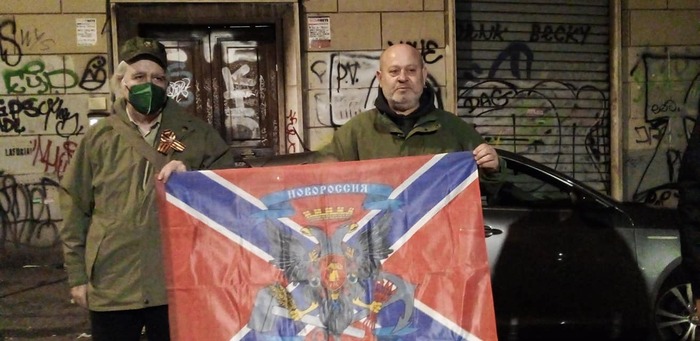
At the same time, the re-examination helped us to identify whole new categories of subjects which we had missed while working on the first iteration of the project. In particular, those were the honorary consuls of Russia in Europe and the networks of Cossack organizations which exist in almost every country and present a lurking threat: not only do they spread the ideas of the “Russian World”, but they also provide the muscle for pro-Russian protests and events within the EU And last, but not least, the EU-based Cossacks often have military training.
As a result, the current version of the database contains approximately 1,600 people and over 500 organizations (except parishes).
New Aspirations of the “Compatriots”
At the beginning of 2023, the Federal Agency for the Commonwealth of Independent States Affairs, Compatriots Living Abroad, and International Humanitarian Cooperation (Rossotrudnichestvo) which coordinates the activities of Russian organizations outside Russia decided to rethink the paradigm of its operations. According to the earlier policies, the activities of the “compatriots” were mainly aimed at the diaspora — i.e. those who had immigrated from Russia. Due to the “aggressive Russophobia”, today the agency is forced to step out of the comfort zone and engage non-Russians.
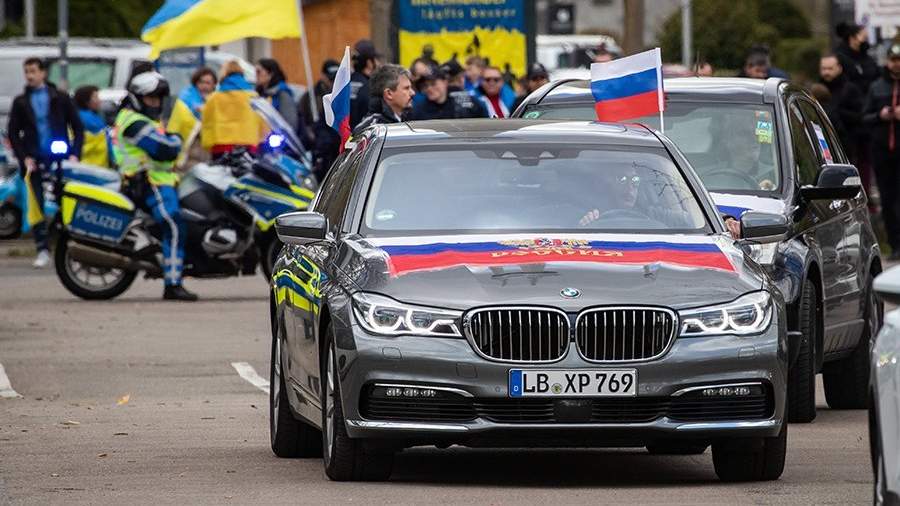
In common terms this may mean more protests and more aggressive promotion of Russian language, culture, narratives, political and economic agenda, lobbying of business interests as well as more higher educational establishments and civic organizations. This would especially be true for the “non-friendly” states which include the entire European Union despite the huge Russian diaspora and the strong economic ties of the past. The protests, motor rallies in support of the war and against the sanctions, children's Olympics in Russian language, the “Immortal Regiment” marches, and the mock Cossack villages are just a tip of an iceberg. This is only a small fraction of the tremendous destructive potential of the agents of influence on Kremlin's payroll: politicians, civic organizations, cultural figures, athletes, school teachers and entrepreneurs who are interested in restoring business with Russia.

In February's report of the Estonian Foreign Intelligence Service, the activities of Rossotrudnichestvo appeared among the examples of undercover operations run by the Federal Security Service (the FSB). According to the intelligence service, the “compatriots” are managed by the FSB’s Fifth Service also referred to as the Department for Operational Information. One of the officers in charge of those activities is General Dmytro Milyutin also known to have coordinated the anti-government protests in Moldova.
“The FSB enlists the services of Russian compatriots living outside Russia to recruit collaborationists from among the supporters of the “Russian World” ideology enabling intelligence gathering and spreading propaganda which glorifies Russia and discredits their new homeland and other countries of the West. In fact, the directorate coordinates the activities aimed at maintaining and restoring the fifth column — especially in the countries which border on Russia and which have a large Russian-speaking community, the report says. The authors also add that the FSB and the Foreign Intelligence Service (the SVR) use the Rossotrudnichestvo offices as fronts. Furthermore, they claim that the intelligence services also use the organizations of Russian industrialists and entrepreneurs, the public relations departments of industrial and finance companies for their undercover operations. “Such relations facilitate international networking for the Russian businesspeople and enable them to spread the messages on the importance of good relations with Russia and the need to “keep business and politics separate”, state the authors of the report.
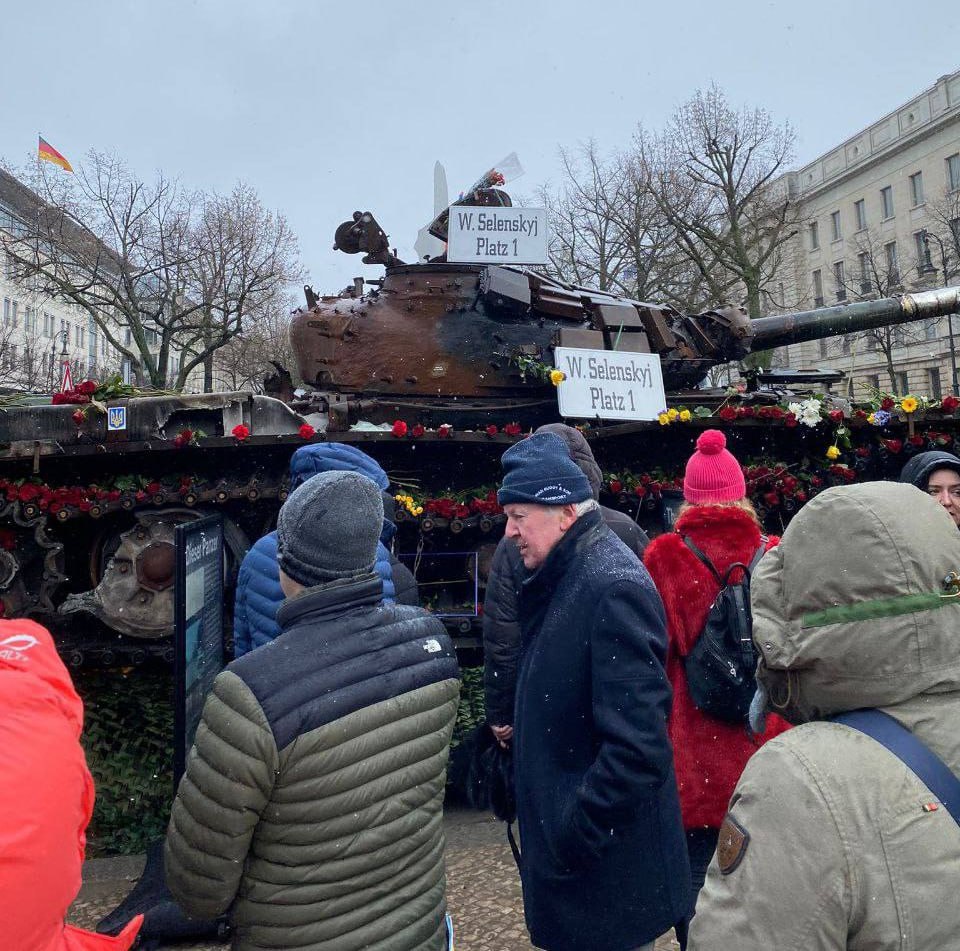
Such risks demonstrate that studying this influence is as relevant as ever. This is why TEXTY has been updating and expanding the “Germs of “Russian World” database which has evolved into the second edition presented today.
The reception of the first edition of the “Germs”
Although Western and Ukrainian media often published disparate facts and limited-scope investigations of Russian influence in European countries, there has never been a single list of agents of influence arranged by category. TEXTY was the first to compile such a database in which the subjects are categorized by the area of influence, the type of cooperation and their connections with Russians and the “Russian World”.
It was our first project launched in the Ukrainian and English languages simultaneously. The English version got three times as many views than the Ukrainian one — also a first. It was no surprise, however, since the publication of “local” lists got the attention of many of our readers in Europe and encouraged them to study the problem for their country in more detail. A dozen teams of investigative journalists from all over Europe asked our permission to use the database as a foundation for their own investigations of the “germs”.
We have also received requests for the dataset access from certain security agencies in the EU. In addition to that, our investigation has stirred the interest of academic researchers from worldwide who study the influence of Russia and the influence of its propaganda on various processes in their home countries in particular.
Of course, our lack of understanding of the national context resulted in a fair share of criticism on part of our careful readers in connection with inappropriate representation of the actual position of a certain government officials, scientists or civic activists. Some criticism was expected since we were fully aware of our limited knowledge of the context and political landscape of the 19 countries which were the focus of our investigation (17 countries of the EU, Serbia and the UK). Therefore, we would like to thank everyone who offered their objections and remarks via private messages and on social media. This feedback informs our continuous efforts to improve the project.
Standalone studies
To tell our readers more about the various supporters of the “Russian World” who exert influence or attempt it from within the countries of Europe in various forms, we have prepared a range of standalone publications of specific categories of such “agents”.
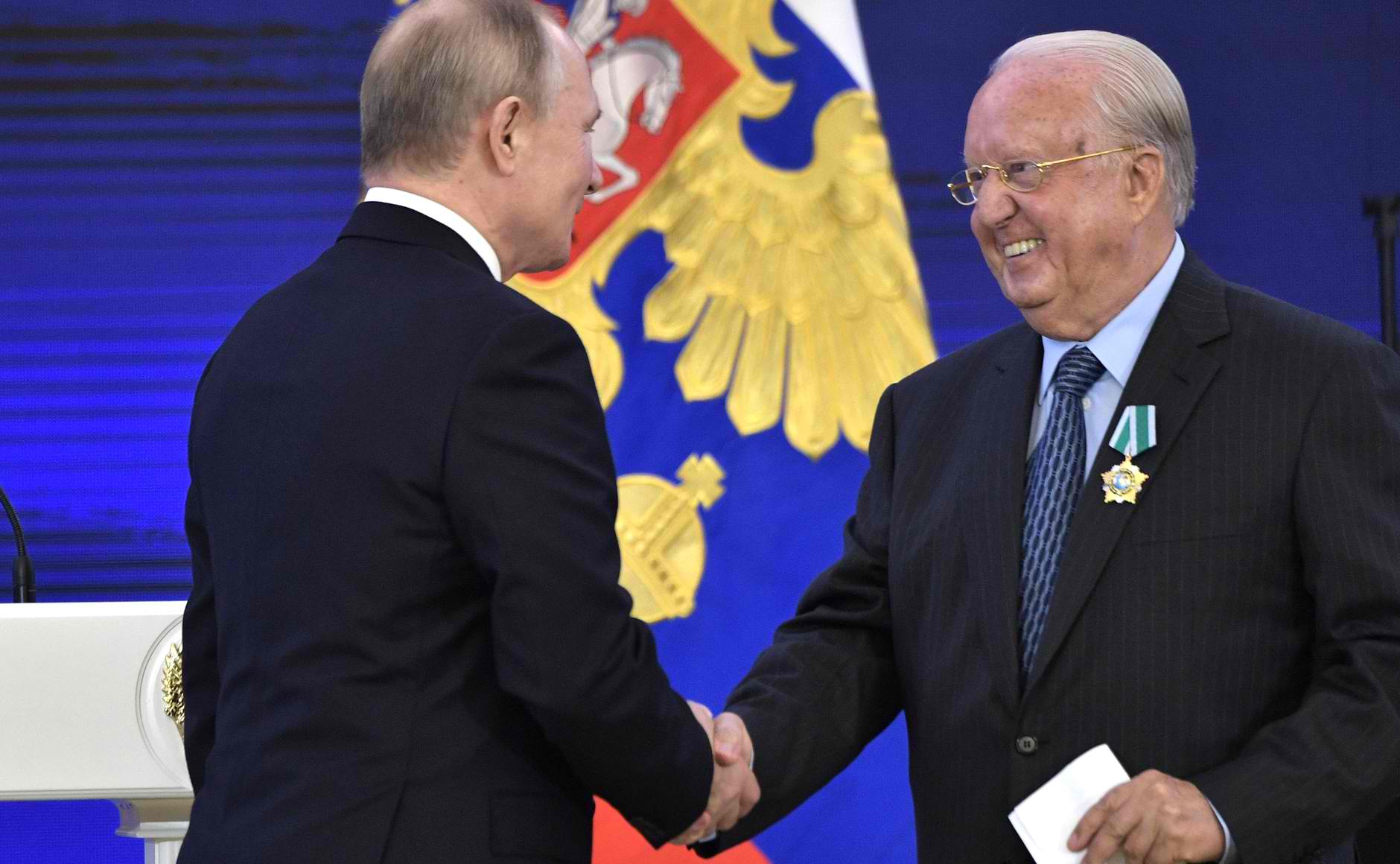
Kremlin's Honorary Minions
This is a study of the institution of honorary consuls appointed from among local businesspeople and professors of European universities who are in fact employed by the Ministry of Foreign Affairs of Russia to represent Kremlin’s interests and provide “compatriot protection” services”. For example, they include the owners of the largest hotel chain in Greece, a fishing company from Greenland and even a former prime minister of Lichtenstein.
Cossackarium
This article investigates how a real estate agent from Spain, a sex tech enterpreneur from Estonia and a Krasnodar-based police officer run the “Cossack villages” in Europe. There is a number of “Cossack” organizations that openly support the Russian aggression against Ukraine and send their “Cossack” detachments to fight in the war.
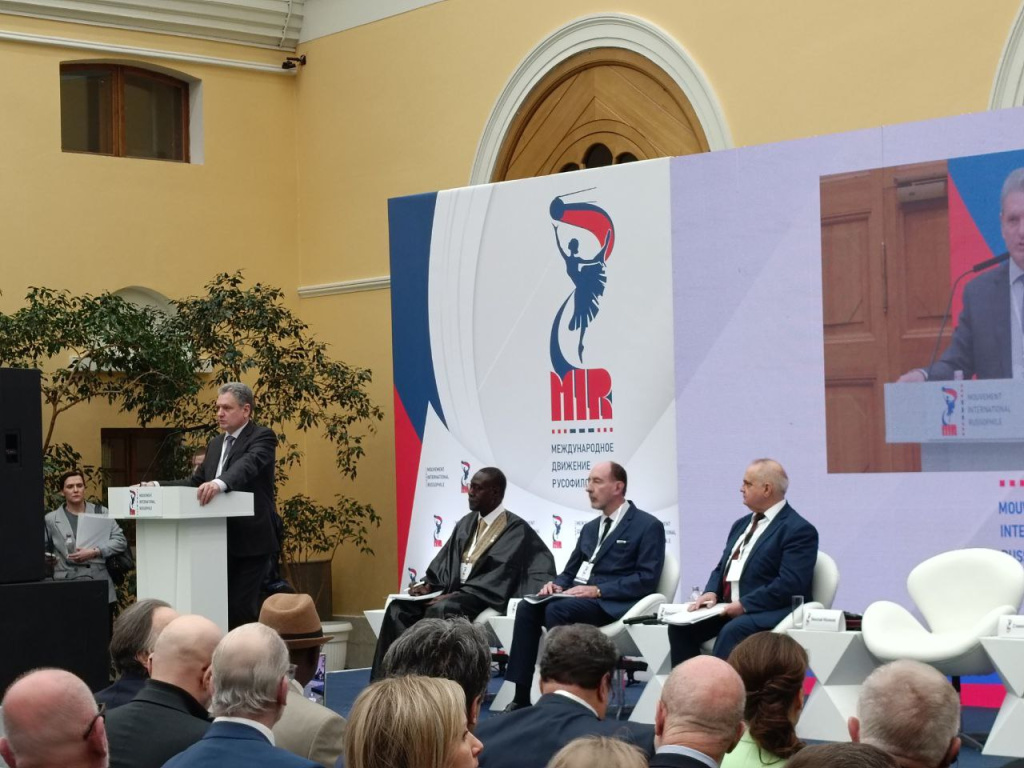
Pumping up the Russophilia
This material covers the participants of the “Russophile” convention organized and coordinated by ultra-right movements from Russia under the patronage of the Ministry of Foreign Affairs of Russia to demonstrate the unity of their allies who are ready to channel Russian narratives. However, the event was a flop as most of the attendees were oddball figures with minimum influence in their respective countries.
“Russian Battle Scholars”
This articles gives a peak into the inner workings of the system of Russian language promotion in the world through local associations of teachers and the “Russian culture study” unions which all serve the Kremlin's propagandist purposes. Each year, Russians invest heavily in hundreds of conferences and contests which glorify the “grand and mighty” Russian language.
The networks of cultural influence which run strong in Europe are among the assets which still deserve further study. Both Russians and their supporters in the EU tend to promote the narrative that Russian culture (including school education, theater, ballet, fine arts, sport and many others — whichever it is) has nothing to do with politics.
The message that the collective “Tolstoyevsky” is a weapon of Russian propaganda and that it simply paves way for Russian tanks still falls on skeptical years in Europe. However, as some Ukrainian performers often lose touch with reality and refuse to stand in solidarity with the government while fighting off the aggression, they, in fact, contribute to further promotion of Russia-related content.
Using the “Swan Lake” ballet by Pyotr Tchaikovsky, the favorite composer of Russian propaganda, as an example, TEXTY have shown how deeply Russia has rooted in the European cultural domain and how Ukrainian companies and performers contribute to this phenomenon while the full-scale war rages on.
Many countries of Europe frequently host numerous “Russian Balls”. Although they are positioned as common entertainment events, they are held with the support of the local offices of Rossotrudnichestvo. Those events provide another example of cultural expansion and the finesse with which Russians use culture to promote their own greatness.
At the beginning of 2023, we got news of one of such balls being organized in Rome. According to the organizers, “The Grand Russian Ball” sponsored by a number of Italian luxury brands was intended to “strengthen the cultural ties between Italy and Russia”. TEXTY asked the “partners” of the event to explain the reasons of supporting the ball. At least one of the “patrons”, Sapienza Università di Roma, responded that they were not involved with the event.
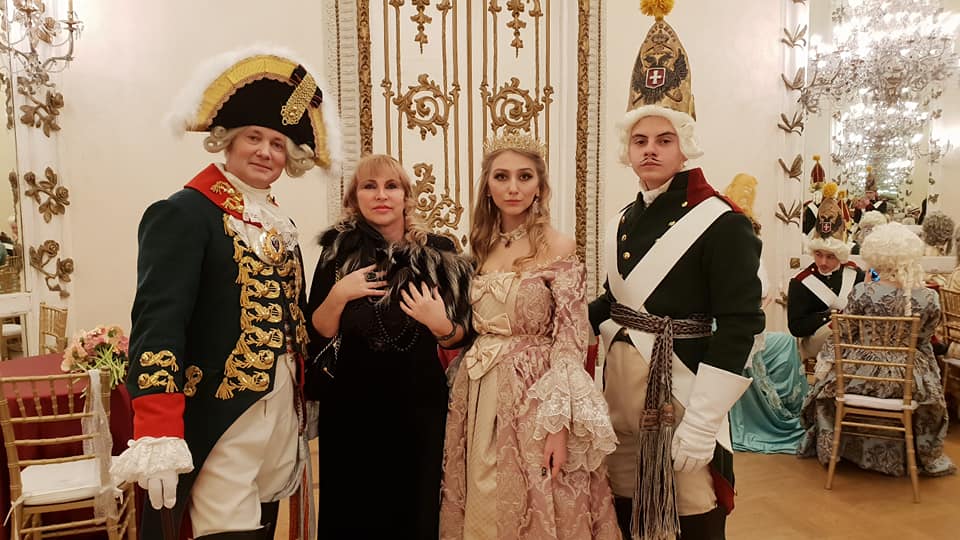
However, the response of Fondazione Alberica Filo della Torre also listed as a partner carried a markedly neutral tone: “We support cultural events and extend scholarships on a neutrality basis since we have no business in politics. Our treatment of people is solely based the merits of competence and passion and, therefore, we welcome everyone who shares an interest in culture, art and academic research”. Such an approach goes to show that there are still many quiet supporters of Russia who are poised to restore not only the cultural, but also the economic and political ties with the aggressor state as soon as there is an opportunity.
If you are aware of any subjects from the 19 countries which are absent from our dataset or you would like to add or change the information about any entry on our database, please use our editorial email or fill out the request form.
THE UPDATED ‘GERMS’ PROJECT WAS PREPARED BY:
CONCEPT: Anatoliy Bondarenko
TEXT: Oleksii Nabozhniak
VISUALIZATION: Yevheniia Drozdova, Nadia Kelm
DATA COLLECTION: Serhii Mikhalkov, Sonya Maksymiv, Oleksii Nabozhniak, Anastasiya Shkalyova, Anastasiya Spirina



